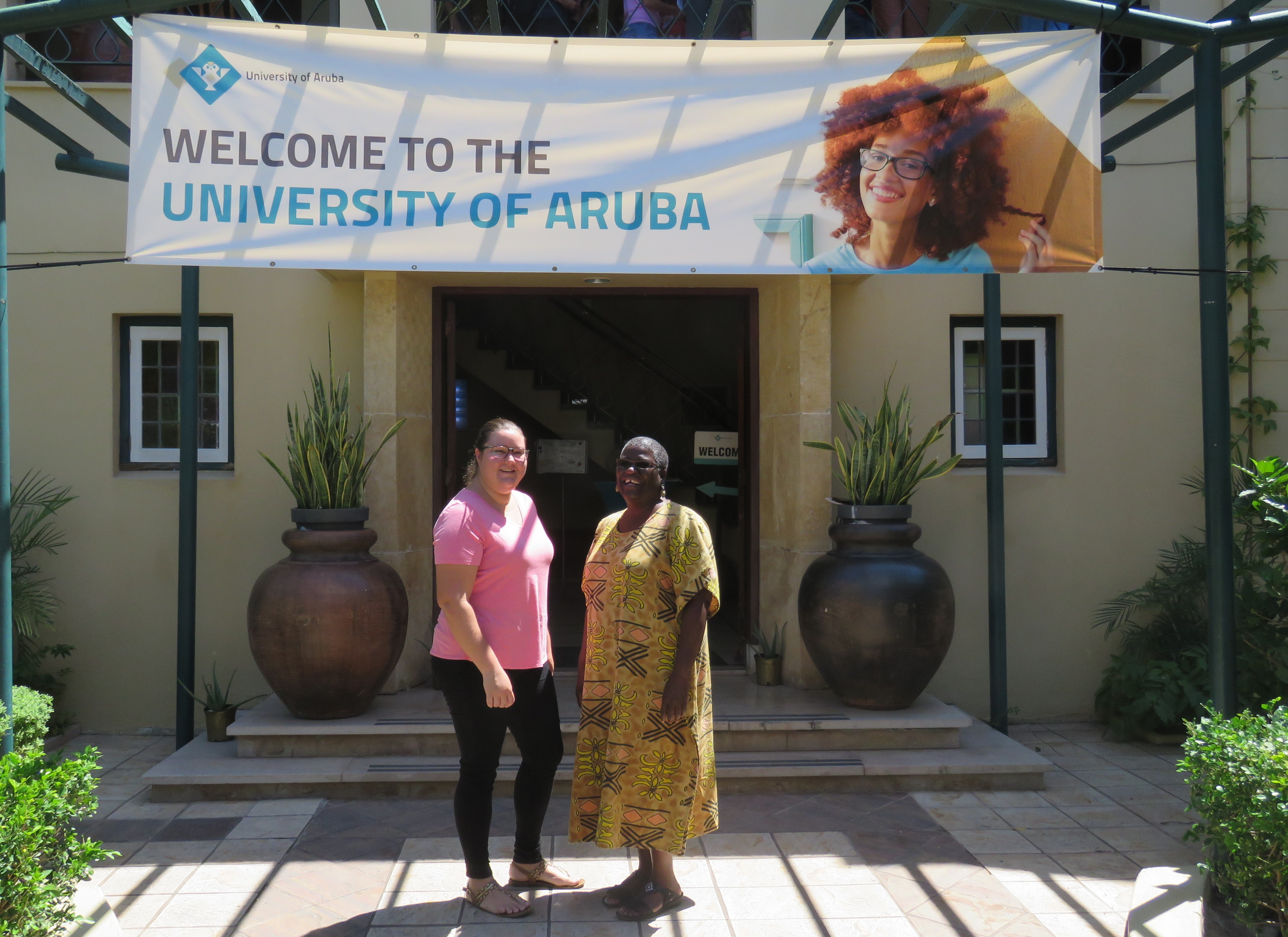By Linda Reijnders
ORANJESTAD – The date of 24th of March is a special one for the University of Aruba. Not only is it their Open House Day, but last year on this exact day the NVAO (Dutch-Flemish Accreditation Organization) gave their positive advice on the quality of the HBO-bachelor program Social Work and Development, Faculty of Arts & Sciences. 4th year student Tracey Werleman and lecturer Clementia Eugene are very clear about their passion for social work and Aruba Today is happy to share their words with you.
Clementia: We have 36 students in our program now for all 4 years. The studies offer a generalist orientation, upon graduation our students are capable of working in a wide variety of social service agencies. That’s said that our students do their internships in all the agencies that you can think of in Aruba.
We have students at SABA, a senior home where they work with elderly people, at the hospital as a medical social work student, at PAAZ as a mental health social workers, at SVGA where our students work with people that have limitations, at Social Affairs which is the government department where they work in different fields like youth, welfare, older persons, and we also have students at Heart Centered Leadership Foundation which is a foundation that works towards empowering young people at risk, either at their job or at school.
We also have students working at the schools as social workers and at CEDHM, Centre for Women and Development. It is very broad indeed and students get to choose what they like based on their interest and specialization. They have three opportunities to explore where their interest is strongest.
4 years program
They have a competency based program meaning the combination of knowledge, skills and attitude are integrated. The 1st year enhances a lot of knowledge courses like psychology role, critical thinking, and sociology, introduction to social work, academic reading and writing. The 2nd year courses include more skills like counseling, social work, gerontology and social practices on children and youth, while the 3rd year you learn to do social work in groups, community empowerment and managing social services.The 4rd year the courses move away from individuals and communities to look at the macro level of policy and advocacy. “We want our students not only to graduate and knock on somebody’s door but be able to work independent and have their own business”, says Clementia. There are 16 part-time lecturers teaching the students.
Unpayable Rewarding
Tracey: “A lot of people think that social work is only on a micro level like counseling, but you can also work with governments, work on community programs or create company policies. You can be a core, medical or company social worker, it is so broad! My passion for this work is to feel that you make a difference in someone’s life, it is not all about money! Clementia agrees: “This profession may not be that rewarding for the pay check at the end of the month, but the fact that you can help transform the life of somebody, give them a second change and help them get insight into the challenges they have so that they can enjoy a better quality of life: that role of the social worker is unpayable rewarding.
” We cannot underestimate the fact that there is the One Happy Island part, but also a lot of social issues from child abuse to domestic violence to poverty to abuse of alcohol and drugs or gambling. “Even suicidal issues, depressions, mental health problems are growing, so we need a category of social help workers to help give those individuals the coping strategies, the skills they need and the hope that they can live a better quality life.” Clementia emphasizes that the faculty welcomes everybody to come and talk to students and lecturers on March 24th. “We need to interest men and foreign students too. And we will, so they
can see that social work is changing to another dimension.”




















